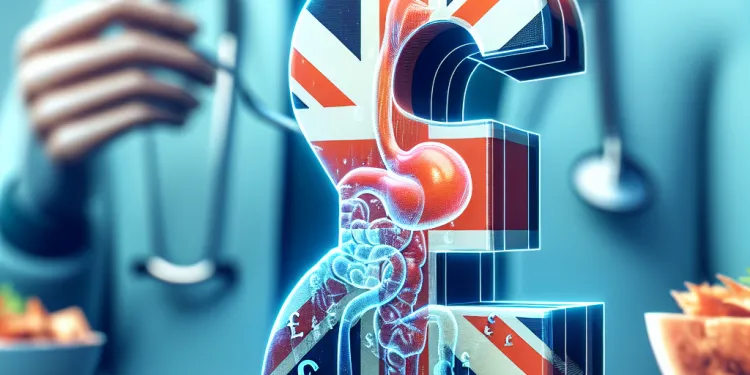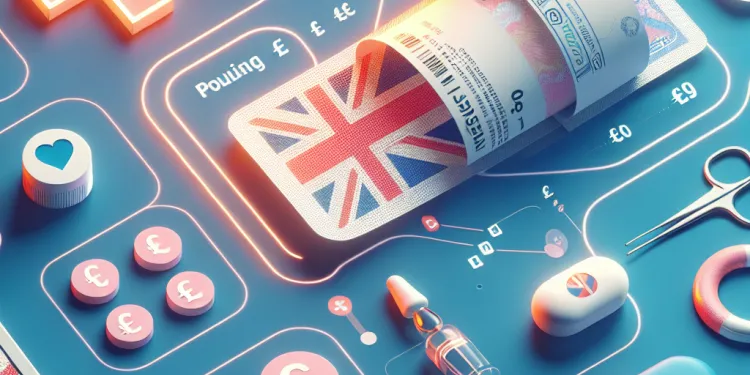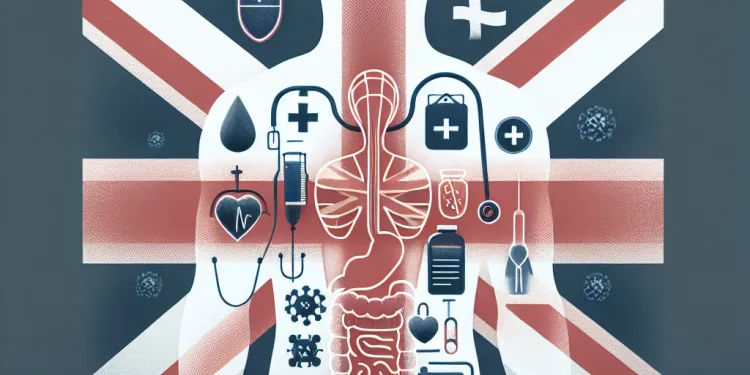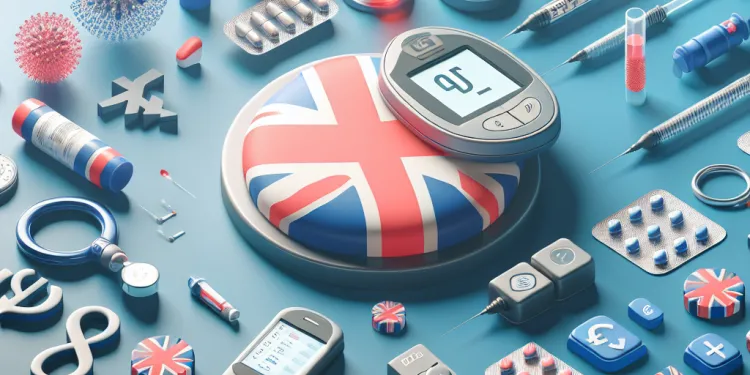
Find Help
More Items From Ergsy search
-

Is GLP-1 naturally occurring?
Relevance: 100%
-

What is GLP-1?
Relevance: 54%
-

What is the half-life of GLP-1?
Relevance: 52%
-

What is the connection between GLP-1 and insulin?
Relevance: 45%
-

How does GLP-1 affect appetite?
Relevance: 45%
-

Are there any common side effects of GLP-1 medications?
Relevance: 44%
-

Can GLP-1 be used as a medication?
Relevance: 44%
-

Do GLP-1 medications affect weight?
Relevance: 43%
-

What does GLP-1 stand for?
Relevance: 43%
-

Is GLP-1 related to any other hormones?
Relevance: 43%
-

Are GLP-1 medications injectable?
Relevance: 43%
-

Are there any GLP-1 medications that are taken orally?
Relevance: 43%
-

Where is GLP-1 produced in the body?
Relevance: 42%
-

What impact does GLP-1 have on glucose metabolism?
Relevance: 42%
-

How do GLP-1 receptor agonists work?
Relevance: 41%
-

Can GLP-1 levels be measured?
Relevance: 41%
-

What role does GLP-1 play in diabetes management?
Relevance: 40%
-

Are there any dietary factors that influence GLP-1 secretion?
Relevance: 38%
-

Is embalming allowed in natural burials?
Relevance: 32%
-

Woodland and Natural Burials
Relevance: 31%
-

What is the difference between a woodland and natural burial?
Relevance: 31%
-

Do I need a coffin for a natural burial?
Relevance: 30%
-

What is the difference between natural sugar and added sugar?
Relevance: 30%
-

Is it possible to delay menopause naturally?
Relevance: 29%
-

Are there natural remedies for menopause masking?
Relevance: 29%
-

Can GLP-1 be used for type 1 diabetes?
Relevance: 27%
-

Are there any natural remedies for bed bugs?
Relevance: 27%
-

Can whiplash occur at low-speed impacts?
Relevance: 27%
-

Are there any natural predators of screw worms?
Relevance: 27%
-

Can hypotony occur in both eyes?
Relevance: 26%
-

Can hay fever occur year-round?
Relevance: 26%
-

Can appendicitis occur more than once?
Relevance: 25%
-

Can SAD occur in the summer?
Relevance: 25%
-

Where do Chikungunya outbreaks typically occur?
Relevance: 24%
-

Are there any natural appetite suppressants, and can they help with weight loss?
Relevance: 24%
-

Can I have a natural birth after a Caesarean section?
Relevance: 24%
-

Can natural changes alter property boundaries?
Relevance: 23%
-

Can concussions occur without a direct blow to the head?
Relevance: 23%
-

Do sunbeds provide a safer way to tan compared to natural sunlight?
Relevance: 23%
-

Can drink spiking occur in private settings?
Relevance: 23%
Introduction to GLP-1
Glucagon-like peptide-1 (GLP-1) is a hormone that plays a crucial role in the regulation of blood sugar levels and appetite. It is of significant interest in the medical community, particularly concerning the management of diabetes and obesity. With increasing attention given to its applications, a common question arises: Is GLP-1 naturally occurring in the body?
Natural Occurrence of GLP-1
Yes, GLP-1 is indeed a naturally occurring peptide hormone in the human body. It is produced in the intestines, specifically by the L-cells located in the lining of the small intestine in response to food intake. GLP-1 is part of the incretin family of hormones, which are crucial for maintaining blood glucose levels within a normal range after eating.
Role of GLP-1 in the Body
GLP-1 serves multiple functions related to metabolism and digestion. One of its primary roles is to enhance insulin secretion from the pancreas in response to meals. This helps lower blood glucose levels, a function that is particularly important for those with insulin resistance or type 2 diabetes. Additionally, GLP-1 inhibits the secretion of glucagon, a hormone that otherwise would increase blood sugar levels by stimulating glucose release from the liver.
Beyond its effects on glucose metabolism, GLP-1 also slows gastric emptying, which can lead to a feeling of fullness and reduce appetite. This characteristic is especially beneficial for managing body weight, making GLP-1 an attractive target for therapeutic interventions in obesity treatment.
Clinical Applications of GLP-1
Given its beneficial effects on glucose control and weight management, GLP-1 has been the focus of various therapeutic drugs. GLP-1 receptor agonists, drugs that mimic the actions of GLP-1, are used in the treatment of type 2 diabetes and, more recently, obesity. These medications work by enhancing the natural effects of GLP-1, providing better control of blood sugar levels without the risk of inducing hypoglycemia.
Some of these GLP-1-based therapies, approved by the NHS in the UK, have been shown to not only improve glycemic control but also to aid in weight loss. As a result, they represent a significant advancement in the management of metabolic disorders.
Conclusion
In summary, GLP-1 is a naturally occurring hormone that plays a pivotal role in glucose homeostasis and appetite regulation. Its natural occurrence and significant physiological effects have spurred interest in its therapeutic potential. The development of GLP-1 receptor agonists provides promising avenues for effective diabetes and obesity management, offering hope for patients seeking improved health outcomes.
What is GLP-1?
GLP-1 is a hormone. Hormones are tiny messengers in our bodies that help control how things work. GLP-1 helps control blood sugar levels and our appetite. This is important for people with diabetes and those who struggle with weight. People often wonder if GLP-1 is something our body makes naturally.
Is GLP-1 Naturally Found in Our Bodies?
Yes, GLP-1 is made naturally in our bodies. It is made in our intestines when we eat. The intestines are part of our tummy area that helps with digestion. GLP-1 is one of the hormones that helps keep our blood sugar levels normal after eating.
What Does GLP-1 Do?
GLP-1 has several important jobs. First, it helps the pancreas, an organ in our body, make insulin after we eat. Insulin is a hormone that lowers blood sugar levels. This is important for people with diabetes. GLP-1 also stops another hormone, called glucagon, which raises blood sugar levels. In addition to this, GLP-1 makes the stomach empty food more slowly. This means we feel full for longer and don't eat as much. This can help people who want to lose weight.
How is GLP-1 Used in Medicine?
Because GLP-1 helps with blood sugar and weight, doctors have made medicines that act like GLP-1. These medicines help people with type 2 diabetes and those who want to lose weight. These medicines help control blood sugar levels without making them too low. In the UK, the NHS has approved some of these treatments. They help people control their diabetes and weight better.
Conclusion
In short, GLP-1 is a natural hormone that helps control blood sugar and appetite. Because of its important jobs, scientists have made medicines to help people with diabetes and weight issues. These medicines can really help people feel better and stay healthy.
If you find it hard to read, try using tools like text-to-speech or colored overlays. These can make reading easier and more fun!
Frequently Asked Questions
What is GLP-1?
GLP-1, or glucagon-like peptide-1, is a hormone that plays a role in blood sugar regulation and satiety.
Is GLP-1 naturally occurring in the body?
Yes, GLP-1 is a naturally occurring hormone produced in the intestines.
Where in the body is GLP-1 produced?
GLP-1 is produced by the L-cells in the lining of the small intestine.
What triggers the release of GLP-1?
The release of GLP-1 is stimulated by the intake of nutrients, particularly carbohydrates and fats.
What is the primary function of GLP-1?
GLP-1 helps regulate blood glucose levels by enhancing insulin secretion and inhibiting glucagon release.
How does GLP-1 affect appetite?
GLP-1 contributes to feelings of satiety, helping to reduce food intake.
Is GLP-1 associated with any diseases?
GLP-1 is implicated in the management of type 2 diabetes, as it aids in insulin regulation.
Can GLP-1 levels be measured in the body?
Yes, GLP-1 levels can be measured using specific blood tests.
Are there synthetic versions of GLP-1?
Yes, there are synthetic forms known as GLP-1 receptor agonists used to treat type 2 diabetes.
Do GLP-1 receptor agonists have the same effects as natural GLP-1?
GLP-1 receptor agonists mimic the effects of natural GLP-1, helping to regulate blood sugar levels.
Can lifestyle changes influence GLP-1 levels?
Yes, diet and exercise can influence GLP-1 secretion and effectiveness.
Does GLP-1 play a role in weight management?
Yes, by promoting satiety and reducing appetite, GLP-1 can aid in weight management.
How long does GLP-1 stay active in the bloodstream?
The active form of GLP-1 is rapidly degraded, typically within minutes, by the enzyme DPP-4.
What foods might enhance GLP-1 production?
Foods rich in fiber and healthy fats can potentially enhance GLP-1 production.
Are there any known supplements to boost GLP-1 levels?
Currently, there are no direct supplements for GLP-1, but a balanced diet can help support its natural production.
Why is GLP-1 important for diabetics?
GLP-1 is important for diabetics as it helps regulate insulin levels and reduces blood glucose spikes.
Can increasing GLP-1 help with insulin sensitivity?
Yes, increased GLP-1 activity can improve insulin sensitivity and aid in better glucose control.
Do all people have the same levels of GLP-1?
No, GLP-1 levels can vary based on individual metabolic health and lifestyle factors.
Is GLP-1 involved in any other bodily functions?
Beyond metabolic roles, GLP-1 has been found to have cardiovascular and neuroprotective effects.
Can GLP-1 related treatments be used for conditions other than diabetes?
Yes, GLP-1 related treatments are also researched for obesity and certain metabolic disorders.
What is GLP-1?
GLP-1 is something in your body that helps control your blood sugar. It also makes you feel less hungry.
Here are some ways to help understand GLP-1:
- Use pictures or drawings.
- Watch a video about it.
- Ask someone to explain it in a simple way.
GLP-1 is a hormone. Hormones are special messengers in our body. GLP-1 helps control blood sugar and tells us when we are full after eating.
Is GLP-1 Found in the Body?
Yes, GLP-1 is in our bodies.
Your body makes GLP-1 on its own.
If you want to learn more, you can:
- Ask a doctor or a nurse.
- Watch a video about it.
- Use a picture that explains it.
Yes, GLP-1 is a hormone that your body makes in the intestines.
Where does the body make GLP-1?
GLP-1 is made by special cells in the wall of your small intestine.
What makes GLP-1 come out?
GLP-1 is something in your body. It comes out when you eat food.
When food goes into your stomach, GLP-1 is released. This helps your body use the food for energy.
If it is hard to understand, you can ask someone for help. You can also use pictures or videos to learn more.
GLP-1 gets released when you eat food. This happens mostly when you eat foods with lots of carbs and fats.
What does GLP-1 do?
GLP-1 helps control the sugar in your blood. It tells your body to make insulin after you eat. Insulin helps bring sugar from the food you eat into your cells. This gives you energy.
Try this: Use pictures and videos to learn more about GLP-1 and insulin.
GLP-1 helps keep blood sugar levels steady. It makes the body release more insulin. Insulin helps lower blood sugar. GLP-1 also tells the body to release less glucagon. Glucagon can raise blood sugar levels.
Tip: Picture insulin and glucagon as traffic lights. Insulin is the green light, helping sugar go into cells. Glucagon is the red light, stopping sugar from going into cells. GLP-1 helps keep the lights working right.
What is GLP-1 and how does it change how hungry we feel?
GLP-1 is something our bodies make. It helps us know when we are hungry or full. When GLP-1 is in our body, we might feel less hungry.
If you find it hard to read, you can:
- Ask someone to read with you.
- Use a ruler or your finger to follow the words.
- Take breaks if you need to.
GLP-1 helps you feel full, so you eat less food.
Does GLP-1 have a link to any illnesses?
GLP-1 is a part of your body. Scientists study GLP-1 to see if it connects to any illnesses. GLP-1 might be important for some health problems.
Tools to help:
- Ask a doctor for more information about GLP-1.
- Use videos or pictures to learn about GLP-1 and diseases.
- Talk with someone you trust about what GLP-1 does.
GLP-1 helps people with type 2 diabetes by controlling insulin.
Can we measure GLP-1 in the body?
Yes, you can measure GLP-1 levels in the body. GLP-1 is a hormone. Doctors can test blood to see GLP-1 levels.
Support tools: Working with a doctor can help understand results better.
Yes, doctors can check GLP-1 levels with a special blood test.
Are there man-made versions of GLP-1?
GLP-1 is a chemical in the body that helps control sugar levels.
Scientists have made man-made versions of GLP-1.
These can help people who have trouble with their sugar levels.
Ask your doctor for advice if you think you need help with GLP-1.
Using pictures or videos can also help you understand better.
Yes, there are special medicines called GLP-1 receptor agonists. Doctors use them to help people with type 2 diabetes feel better.
Do GLP-1 medicines work like natural GLP-1?
GLP-1 receptor agonists work like the natural GLP-1 in the body. They help control blood sugar levels.
Can changing how we live change GLP-1 levels?
GLP-1 is something in our body that helps with hunger and feeling full.
If we eat healthy food, exercise, and sleep well, it might help with GLP-1 levels.
Try to eat more fruits and veggies. Move your body by walking or playing.
Get good sleep each night.
These things might help your body feel better!
If you find reading hard, try using pictures or ask someone to read with you.
Yes, what you eat and how much you move can change how GLP-1 works in your body.
Can GLP-1 help with weight loss?
GLP-1 is a thing in your body that might help you lose weight.
Here are some tips to help you understand better:
- Ask someone you trust to read with you.
- Use pictures or drawings to help explain the ideas.
- Take breaks if it feels hard to keep reading.
- Use tools like reading pens that read text out loud.
Yes, GLP-1 can help you feel full and less hungry. This can help you manage your weight.
How long does GLP-1 stay in the blood?
GLP-1 is a part of your body that helps control blood sugar. It stays in the blood for a short time.
To help understand better, you can:
- Ask a grown-up or doctor to explain it.
- Use pictures or drawings.
- Look for easy videos online.
The active form of GLP-1 is quickly broken down, usually in a few minutes, by an enzyme called DPP-4.
What foods can help make more GLP-1?
Eating foods with lots of fiber and healthy fats can help make more GLP-1.
Are there any pills or vitamins that can help increase GLP-1?
Right now, there aren’t any pills or supplements for GLP-1. But eating healthy foods can help your body make it naturally.
Why is GLP-1 important for people with diabetes?
GLP-1 is a hormone in your body. It helps control blood sugar levels.
People with diabetes have trouble controlling their blood sugar. GLP-1 can help with this. It keeps blood sugar levels from getting too high.
Some medicines for diabetes help GLP-1 work better.
If you have diabetes, it is good to talk to your doctor about ways to manage your blood sugar. You can also ask about tools like sugar testing kits. These can help you keep track of your blood sugar levels.
GLP-1 is important for people with diabetes because it helps control insulin and keeps blood sugar from getting too high.
Can more GLP-1 improve how well the body uses insulin?
Yes, when GLP-1 works more, it can help your body use insulin better and keep blood sugar levels steady.
Do all people have the same amount of GLP-1?
Not everyone has the same amount of GLP-1 in their body. People can have different levels. GLP-1 is something in our body that helps with how we use sugar.
If you find reading hard, try using tools that read the text out loud to you. That can help you understand better!
No, GLP-1 levels can be different for each person. It depends on their health and how they live.
Does GLP-1 help with other things in the body?
GLP-1 is a hormone in your body. Hormones help with different jobs in your body. GLP-1 helps with:
- Controls how much sugar is in your blood.
- Makes you feel less hungry.
- Helps your heart stay healthy.
- Keeps your stomach working well.
GLP-1 does many important things to help your body work well.
Using pictures or videos can help you understand better. A friend or family member can also explain it to you.
GLP-1 helps your body use energy. It is also good for your heart and brain.
Can GLP-1 Medicines Help with Other Health Problems?
Yes, doctors are looking at GLP-1 treatments to help people who are very overweight or have some body problems.
Useful Links
This website offers general information and is not a substitute for professional advice.
Always seek guidance from qualified professionals.
If you have any medical concerns or need urgent help, contact a healthcare professional or emergency services immediately.
Some of this content was generated with AI assistance. We’ve done our best to keep it accurate, helpful, and human-friendly.
- Ergsy carfully checks the information in the videos we provide here.
- Videos shown by Youtube after a video has completed, have NOT been reviewed by ERGSY.
- To view, click the arrow in centre of video.
- Most of the videos you find here will have subtitles and/or closed captions available.
- You may need to turn these on, and choose your preferred language.
- Go to the video you'd like to watch.
- If closed captions (CC) are available, settings will be visible on the bottom right of the video player.
- To turn on Captions, click settings .
- To turn off Captions, click settings again.
More Items From Ergsy search
-

Is GLP-1 naturally occurring?
Relevance: 100%
-

What is GLP-1?
Relevance: 54%
-

What is the half-life of GLP-1?
Relevance: 52%
-

What is the connection between GLP-1 and insulin?
Relevance: 45%
-

How does GLP-1 affect appetite?
Relevance: 45%
-

Are there any common side effects of GLP-1 medications?
Relevance: 44%
-

Can GLP-1 be used as a medication?
Relevance: 44%
-

Do GLP-1 medications affect weight?
Relevance: 43%
-

What does GLP-1 stand for?
Relevance: 43%
-

Is GLP-1 related to any other hormones?
Relevance: 43%
-

Are GLP-1 medications injectable?
Relevance: 43%
-

Are there any GLP-1 medications that are taken orally?
Relevance: 43%
-

Where is GLP-1 produced in the body?
Relevance: 42%
-

What impact does GLP-1 have on glucose metabolism?
Relevance: 42%
-

How do GLP-1 receptor agonists work?
Relevance: 41%
-

Can GLP-1 levels be measured?
Relevance: 41%
-

What role does GLP-1 play in diabetes management?
Relevance: 40%
-

Are there any dietary factors that influence GLP-1 secretion?
Relevance: 38%
-

Is embalming allowed in natural burials?
Relevance: 32%
-

Woodland and Natural Burials
Relevance: 31%
-

What is the difference between a woodland and natural burial?
Relevance: 31%
-

Do I need a coffin for a natural burial?
Relevance: 30%
-

What is the difference between natural sugar and added sugar?
Relevance: 30%
-

Is it possible to delay menopause naturally?
Relevance: 29%
-

Are there natural remedies for menopause masking?
Relevance: 29%
-

Can GLP-1 be used for type 1 diabetes?
Relevance: 27%
-

Are there any natural remedies for bed bugs?
Relevance: 27%
-

Can whiplash occur at low-speed impacts?
Relevance: 27%
-

Are there any natural predators of screw worms?
Relevance: 27%
-

Can hypotony occur in both eyes?
Relevance: 26%
-

Can hay fever occur year-round?
Relevance: 26%
-

Can appendicitis occur more than once?
Relevance: 25%
-

Can SAD occur in the summer?
Relevance: 25%
-

Where do Chikungunya outbreaks typically occur?
Relevance: 24%
-

Are there any natural appetite suppressants, and can they help with weight loss?
Relevance: 24%
-

Can I have a natural birth after a Caesarean section?
Relevance: 24%
-

Can natural changes alter property boundaries?
Relevance: 23%
-

Can concussions occur without a direct blow to the head?
Relevance: 23%
-

Do sunbeds provide a safer way to tan compared to natural sunlight?
Relevance: 23%
-

Can drink spiking occur in private settings?
Relevance: 23%


